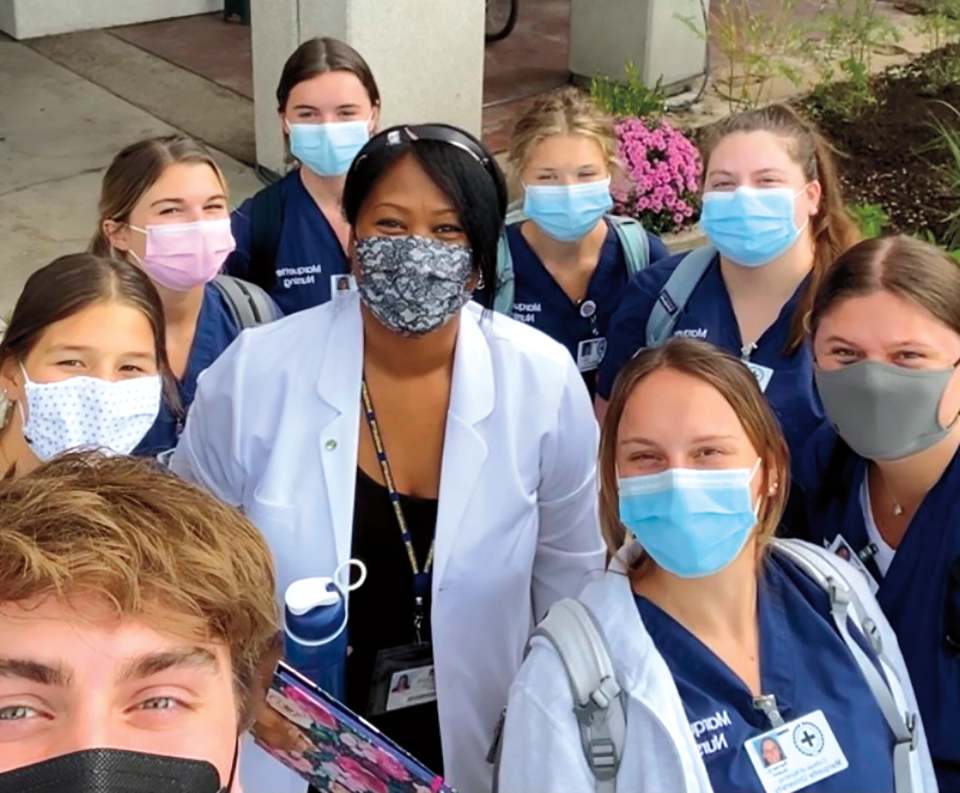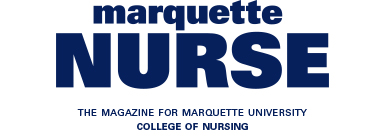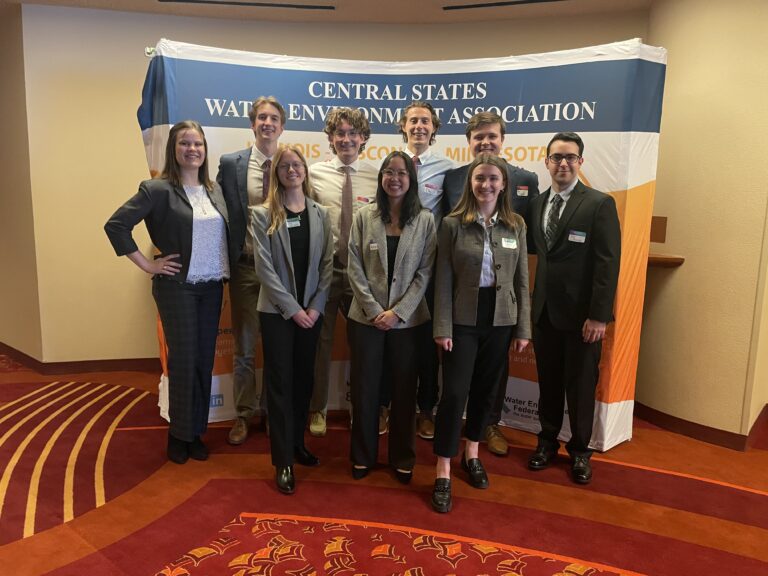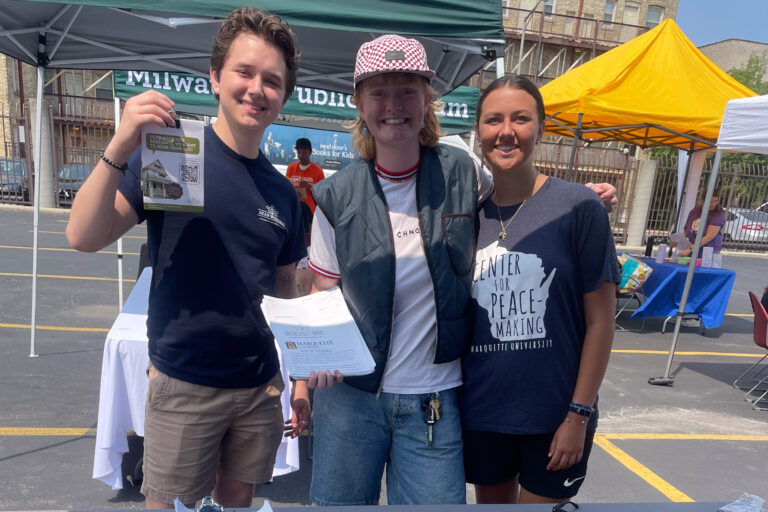
As part of a strategic effort to advance diversity, equity and inclusion, former Dean Janet Wessel Krejci sought to strengthen the college’s community engagement through more mutually beneficial partnerships. In response, Dr. Shelly Malin, director of Health Systems Leadership graduate programs, wrote and received approval to launch a pilot of the Marquette Nurse-Faculty-in-Residence program to expand faculty impact beyond campus.
Enter Kameela Jackson, clinical instructor, community health nursing coordinator and the college’s first nurse-faculty-in-residence. Jackson (pictured above, in center) spends three to four days a week working with both Marquette nursing students and staff and students at Milwaukee Academy of Science, a Near West Side STEM education school of more than 1,200 kindergarten to 12th grade students.
Jackson is tasked with developing opportunities at the school to improve the health and well-being of the students, their families and the school community. She does this by handling some typical school nurse duties: vision screenings, medication distribution and individualized education plan management. But then she is advancing some more uncommon efforts as well: surveying students for classroom health care topics, creating self-care plans for students with chronic diseases, teaching CPR classes
and running a “Nurses Club” for students interested in nursing or health care. Marquette students from her community clinical course gain knowledge and skills in community health as they work to assist
with MAS health-improvement initiatives.
“I consider this to be ‘boots on the ground community nursing,’” Jackson says. “Fostering relationships and actually being present are imperative to making the most impact.”
The pilot Nurse-Faculty-in-Residence program is already seeking expansion opportunities in the Near West Side. The relationship Jackson has built with MAS proves this type of partnership can be fruitful — both in improving community health and building an inclusive nursing workforce.
“MAS staff and students are understanding more of what nursing is and how beneficial it can be,” she says. “I have high school students who are now sparking interest in a career in nursing and the dream of becoming a Marquette University student.”
—Sarah Koziol, Arts ’92




